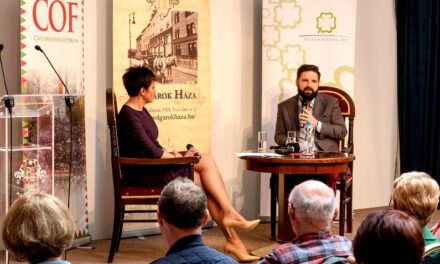Public life is once again vocal about the Istanbul Convention, Momentum is demanding its ratification in a parliamentary petition.
"He who does not support does not stand for the victims", I read almost everywhere.
But that's not the case! On the contrary, the ratification of the Istanbul Convention contains serious dangers.
Radical feminist groups, liberal journalists and politicians are now framing it as if rejecting the Istanbul Convention is a failure of female victims.
However, we represent a different point of view: we believe that the protection of women and victim assistance are of fundamental importance, but we are convinced that the Istanbul Convention is not the right tool for this purpose.
The salad rule carries many dangers!
That is why, together with the Center for Human Dignity, we already spoke effectively against the harmful points of the Istanbul Convention in 2017.
CitizenGO, together with the Center for Human Dignity, is therefore once again calling on the Government and the Parliament to take steps to strengthen women's protection and victim protection in Hungary, but to do so without ratifying the Istanbul Convention.
5 arguments against the Istanbul Convention:
Gender ideology would be a Trojan horse for Hungary:
According to the concept of gender in the Istanbul Convention, "gender" is a social construction that can even be variable and that is essentially independent of biological reality.
"The purpose of the Convention is to promote changes in the social and cultural behavior patterns of women and men and to eliminate prejudices, customs, traditions and other practices based on the idea of the inferiority of women or stereotypical female and male roles."
The Istanbul Convention does not explain what it means by "stereotypical female and male roles" on which some traditions and customs are based. Even folk dance education can be stereotyped under the Convention, as elements of the traditional roles of girls and boys appear in it.
It discriminates against men and boys:
The Convention is not only about violence against women, but also about violence in relationships, which can affect anyone, women and men, girls and boys alike.
The Convention does not equally protect and negatively discriminates against male and male members of society. We are concerned that abused men and women are treated differently under the Convention. In our opinion, a Convention aimed at promoting effective equality between women and men should contribute to ensuring that the victims of violence, whether they are girls, women, boys or men, receive equal treatment.
It is worrying that while countries must apply the Convention to all forms of violence against women, it only encourages them to apply it to all victims of intimate partner violence, i.e. to the boys and men involved. (E.g. If a man abuses a girl child, it is "gender-based violence against women" as defined in the Convention, in relation to which the state has an obligation to act under the Convention. But if a woman does this to a boy child, "merely" relational violence is the Convention from the point of view of which the Convention does not prescribe mandatory steps for the countries.)
The Convention identifies men and boys as potential perpetrators of violence, expecting member states to "encourage all members of society, especially men and boys, to actively contribute to the prevention of all forms of violence covered by this Convention."
It would oblige Hungary to create an expensive inspection system. This money should be spent on real help.
"Based on the provisions of the Agreement, the parties must provide adequate financial resources for the implementation of integrated policies and establish a coordination body in order to coordinate policies and measures."
The creation of such a system imposes a huge burden on the public finances, which, according to our proposal, should be used to improve the social care system, prevention, the development of the care system that helps victims and the improvement of the relationship culture, e.g. it would be necessary to spend on education for family life and the training of professionals.
It puts parental rights at risk
Parents are the primary educators of children. The Universal Declaration of Human Rights makes it clear that parents have the primary right to choose the appropriate education for their children. The Istanbul Convention violates this right, as it may limit the right of parents to refuse school classes and curricula that teach their children about gender.
It threatens religious freedom
The Convention stigmatizes the Christian belief in male-female differences, values, and marriage (the relationship between a man and a woman) as a tradition based on harmful traditional gender roles and stereotypes that "must" be refuted in school curriculum.
Based on the Convention, church schools cannot withdraw from the teaching of compulsory study materials and the binding definition of gender. Thus, even in our country, a situation can arise where a girl's school is sanctioned because it does not admit a boy who feels like a girl among its students.
Thanks to:
Eszter Schittl, on behalf of the Center for Human Dignity and the CitizenGO team













